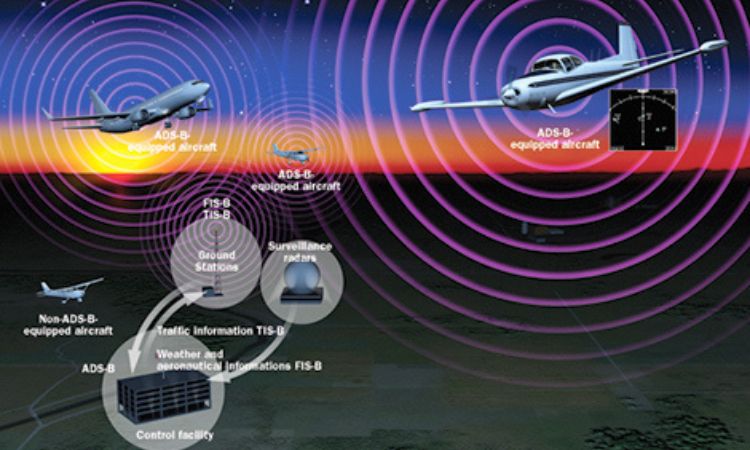Dog daycare has become an increasingly popular solution for busy pet parents who want to ensure their dogs are well cared for during the day. With modern lifestyles demanding more of our time, many dog owners find themselves struggling to provide the attention, exercise, and socialization their pets need. Dog daycare offers a perfect solution, providing a safe and stimulating environment where dogs can thrive. In this comprehensive guide, we’ll explore everything you need to know about dog daycare, from its benefits to what to expect and how to choose the right facility for your dog.
What is Dog Daycare?
Dog daycare is a service that provides supervised care, play, and socialization for dogs during the day. Similar to childcare for children, dog daycare allows pet parents to drop off their dogs in the morning and pick them up in the evening. During their stay, dogs have the opportunity to interact with other dogs, participate in structured activities, and receive attention from trained staff.
Benefits of Dog Daycare
Dog daycare offers a wide range of benefits for both dogs and their owners. Here are some of the key advantages:
1. Socialization
One of the most significant benefits of dog daycare is the opportunity for socialization. Dogs are naturally social animals, and regular interaction with other dogs can help them develop good manners, improve their behavior, and reduce anxiety. Dog daycare provides a controlled environment where dogs can learn to play and interact with others, leading to a happier and more confident pet.
2. Exercise and Physical Activity
Regular exercise is crucial for a dog’s physical and mental health. Dog daycare offers plenty of opportunities for physical activity, whether through supervised play sessions, outdoor walks, or agility courses. This exercise helps keep your dog fit, reduces the risk of obesity, and provides an outlet for their natural energy, leading to a calmer dog at home.
3. Mental Stimulation
In addition to physical exercise, mental stimulation is essential for a dog’s well-being. Boredom can lead to destructive behaviors such as chewing, digging, or excessive barking. Dog daycare provides a variety of activities that challenge your dog’s mind, such as puzzle toys, scent games, and training exercises. These activities keep your dog mentally engaged and prevent boredom-related issues.
4. Reduced Separation Anxiety
Separation anxiety is a common issue for dogs left alone for long periods. Dog daycare helps alleviate this anxiety by providing companionship and a structured routine. Knowing that their dog is in a safe and caring environment can also reduce the stress and guilt felt by pet parents.
5. Professional Care and Supervision
Dog daycare facilities are staffed by trained professionals who understand canine behavior and can provide the care and attention your dog needs. Whether it’s administering medication, monitoring play, or recognizing signs of stress or illness, the staff at a dog daycare are equipped to handle a variety of situations.
What to Expect at Dog Daycare
When you enroll your dog in daycare, you can expect a day filled with fun, exercise, and care. Here’s a typical day at a dog daycare:
Morning Drop-Off
Most dog daycare facilities open early to accommodate pet parents’ work schedules. When you arrive, the staff will greet your dog and guide them into the play area. Some facilities may have a brief evaluation process for new dogs to ensure they are comfortable in the environment.
Group Play Sessions
After the initial drop-off, dogs are typically grouped based on size, temperament, and play style. Group play sessions are a central part of the dog daycare experience, allowing dogs to interact and socialize under the supervision of trained staff. These sessions are usually scheduled throughout the day, with breaks in between to prevent overstimulation.
Individual Attention
In addition to group play, many dog daycare facilities offer one-on-one time with staff members. This could include cuddles, petting, or even a short walk outside. Individual attention ensures that each dog’s unique needs are met, whether they prefer human interaction or need a break from the group.
Rest Periods
Dogs need time to rest and recharge, so daycare facilities often schedule rest periods throughout the day. During these times, dogs may relax in designated rest areas with comfortable bedding and a quiet atmosphere. Rest periods help prevent exhaustion and ensure that dogs remain calm and content.
Afternoon Activities
In the afternoon, dogs may participate in additional activities such as training exercises, puzzle games, or agility courses. These activities provide mental stimulation and reinforce positive behavior. Some facilities may also offer grooming services, so your dog can return home clean and refreshed.
Evening Pick-Up
At the end of the day, you’ll pick up your dog, who will likely be tired but happy after a day of play and socialization. Many dog daycare facilities provide a brief report on your dog’s day, including how they interacted with others, what activities they enjoyed, and any notable behavior.
How to Choose the Right Dog Daycare
Choosing the right dog daycare is essential to ensure your pet’s safety and happiness. Here are some factors to consider when selecting a daycare facility:
1. Reputation and Reviews
Start by researching local dog daycare facilities and reading online reviews. Word of mouth is also valuable, so ask fellow pet owners for recommendations. Look for facilities with positive feedback, especially regarding the care and supervision of the dogs.
2. Facility Cleanliness and Safety
Visit the daycare facility in person to assess its cleanliness and safety. The environment should be clean, well-maintained, and free of hazards. The play areas should be spacious and secure, with separate zones for different sizes and temperaments of dogs. Check that there is adequate fencing, and that the facility follows strict protocols for health and safety.
3. Staff Qualifications
The staff at the dog daycare should be experienced and trained in canine behavior, first aid, and CPR. They should be knowledgeable about dog breeds and their specific needs. Observe how the staff interacts with the dogs; they should be attentive, patient, and caring.
4. Services Offered
Different dog daycare facilities offer various services, so choose one that aligns with your dog’s needs. Some daycares provide additional services like grooming, training, or boarding. If these are important to you, look for a facility that offers a comprehensive range of services.
5. Trial Run and Evaluation
Before committing to a daycare, see if they offer a trial run or evaluation session. This allows you to see how your dog reacts to the environment and how the staff handles their behavior. It’s also an opportunity for the staff to assess whether your dog is a good fit for their daycare.
6. Cost and Convenience
Consider the cost of daycare and how it fits into your budget. Prices can vary based on location, services offered, and the length of stay. Additionally, consider the facility’s location and whether it’s convenient for your daily commute.
Conclusion
Dog daycare is an excellent option for busy pet parents who want to provide their dogs with the care, exercise, and socialization they need. With the right facility, your dog can enjoy a safe, fun, and stimulating environment while you’re at work or attending to other responsibilities. By choosing a reputable dog daycare that meets your pet’s needs, you’ll ensure they have a positive and enriching experience, leading to a happier and healthier dog.
Whether your dog is full of energy or simply enjoys being around other dogs, dog daycare offers a perfect solution to keep them engaged, active, and well cared for throughout the day.
For Other service like Dog Grooming , Dog Daycare , Dog Boarding visit our website www.mercysplayandstay.com




